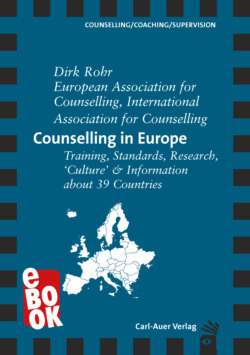Читать книгу Counselling in Europe - Dirk Rohr - Страница 13
На сайте Литреса книга снята с продажи.
2.6 Core Competencies for Counsellors in Europe
ОглавлениеAccredited European Counsellors will demonstrate their ability to:
• Continually develop multicultural awareness;
• Recognise cultural differences between counsellor and client at cultural /country level, and acknowledge and address these in a non-judgmental way;
• Adjust their style of communication to match that of the client;
• Set, maintain and review the appropriate structural and relational boundaries at different stages of the counselling process;
• Establish a contract or an explicit mutual working agreement regarding the aims of the counselling work;
• Develop awareness of the context in which the client and counsellor are functioning to create the best possible conditions; develop an understanding of how counselling influences the context;
• Address the client’s issues in ways that contribute to the counselling process;
• Refine the aims of the counselling to move it forward;
• Facilitate the movement toward the client’s insight, development and change;
• Facilitate the transfer of learning from the counselling relationship to the client’s everyday life;
• Review the counselling process in terms of the client’s experience;
• Bring the counselling to closure in a way that recognises the experience for both the client and the counsellor;
• Work consistently within a clear theoretical orientation;
• Recognise limits and boundaries, both professional and personal;
• Recognise client issues that need the attendance of another professional and refer the client appropriately;
• Be consistently aware of ethical issues and an appropriate approach to moral dilemmas;
• Evaluate the counselling process in terms of your learning as a counsellor;
• Recognise the need for ongoing Supervision and act accordingly.
